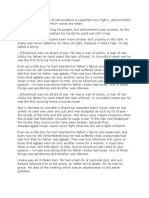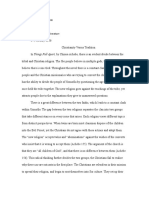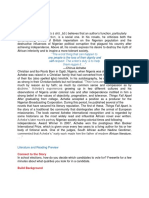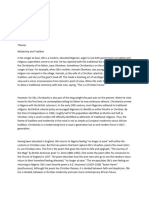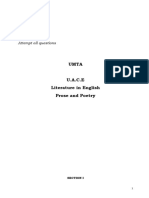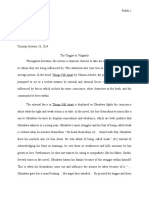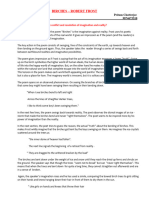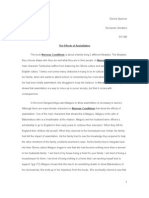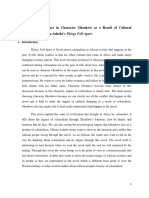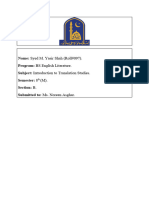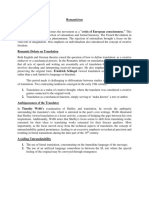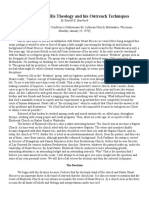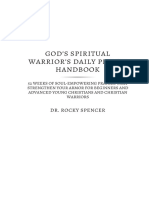0% found this document useful (0 votes)
273 views9 pagesUse of Language in Things Fall Apart
The document discusses Chinua Achebe's use of language in his novel Things Fall Apart. It explores how Achebe incorporated Igbo language, proverbs, and culture into an English text to represent African culture and experiences to international audiences in a way that was innovative for its time.
Uploaded by
Yasir BukhariCopyright
© © All Rights Reserved
We take content rights seriously. If you suspect this is your content, claim it here.
Available Formats
Download as PDF, TXT or read online on Scribd
0% found this document useful (0 votes)
273 views9 pagesUse of Language in Things Fall Apart
The document discusses Chinua Achebe's use of language in his novel Things Fall Apart. It explores how Achebe incorporated Igbo language, proverbs, and culture into an English text to represent African culture and experiences to international audiences in a way that was innovative for its time.
Uploaded by
Yasir BukhariCopyright
© © All Rights Reserved
We take content rights seriously. If you suspect this is your content, claim it here.
Available Formats
Download as PDF, TXT or read online on Scribd
/ 9


